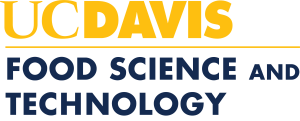A. Specific Learning Outcomes. At the end of this course students will be able to:
- Understand and describe the inherent compositional variability of milk composition, both within and among species.
- Describe the physico-chemical and functional properties of milk constituents (proteins, lipids, carbohydrates, minerals.
- Understand and describe the structural constituents of milk (casein micelle, milkfat globule)
- Understand and describe the colloidal the colloidal systems included in milk (emulsions, suspensions, foam)
- Understand and describe the microbiological composition of raw milk and their implications on food safety aspects of milk and dairy products.
- Understand and describe the effects of cold storage on the physico-chemical, structural, compositional, colloidal and microbiological properties of milk and their implications on milk processability and quality of the derived dairy products.
- Understand and describe the physical and technological principles of unit operations in milk processing: separation, standardization, homogenization, pasteurization, UHT, concentration, spray drying.
- Understand and describe the technological sequences associated with manufacturing consumer milk, fermented milk products and cheese.
- Understand and describe the application of microbial populations (starters) in milk processing
- Understand and discuss the relationships between the inherent physic-chemical and microbiological properties of milk, sequence of operations and process conditions and the ultimate quality attributes of dairy products.
- Understand and discuss the implications of the colloidal nature of milk and dairy products on the physic-chemical and functional properties and quality attributes of dairy products.
How this course addresses IFT Core Competencies:
Senior-level course:
FST 119 is a 4 unit elective lecture course. It builds on principles of food chemistry, food microbiology and food technology that have been acquired in previous courses. It complements FST100A, FST 104 and FST 110A to meet the competencies in the Chemistry, microbiology and processing aspects. The course also addresses many of the Applied Food Science Skills.
B. Tools used to assess program outcomes.
Bloom’s levels I-VI.
The course is aimed at developing the knowledge integration skills and critical thinking of the students. The complex nature of milk and dairy products requires student to draw on a broad array of basic and applied scientific disciplines. The assessment of knowledge is though the mid-term and final as well as through the numerous class discussions. The examinations are designed to test the ability of the students to integrate and synthesize the multi-disciplinary knowledge that they have acquired in the class. A significant part of the exams requires student to demonstrate the latter through analysis of test cases, analysis of “forensic evidence” and design of remedies to process failure or quality challenges. In all exams, more than 50% of the questions are of the essay type.
C. Brief summary of assessment results to date.
FST 119 has been taught by M. Rosenberg for more than 15 years. In light of the complex nature of milk and dairy products, the course has been designed to introduce the interactions between food chemistry, microbiology, physical chemistry, food technology and engineering in milk processing. Each year students are asked to complete a course evaluation form for the course. The numerical scores using a scale of 1 (strongly disagree) to 5 (strongly agree) for specific questions as well as verbal comments are compiled. The course and the instructor are evaluated separately. The mean score for the course and instructor evaluation has improved to around __4.5__ and _4.6__ respectively. Students are specifically encouraged to provide detailed feedback on the course with specific suggestions for course and instruction improvement. The information that becomes available through the students’ assessments is studied carefully and necessary adjustments to course content and instruction are made in order to meet challenges.
